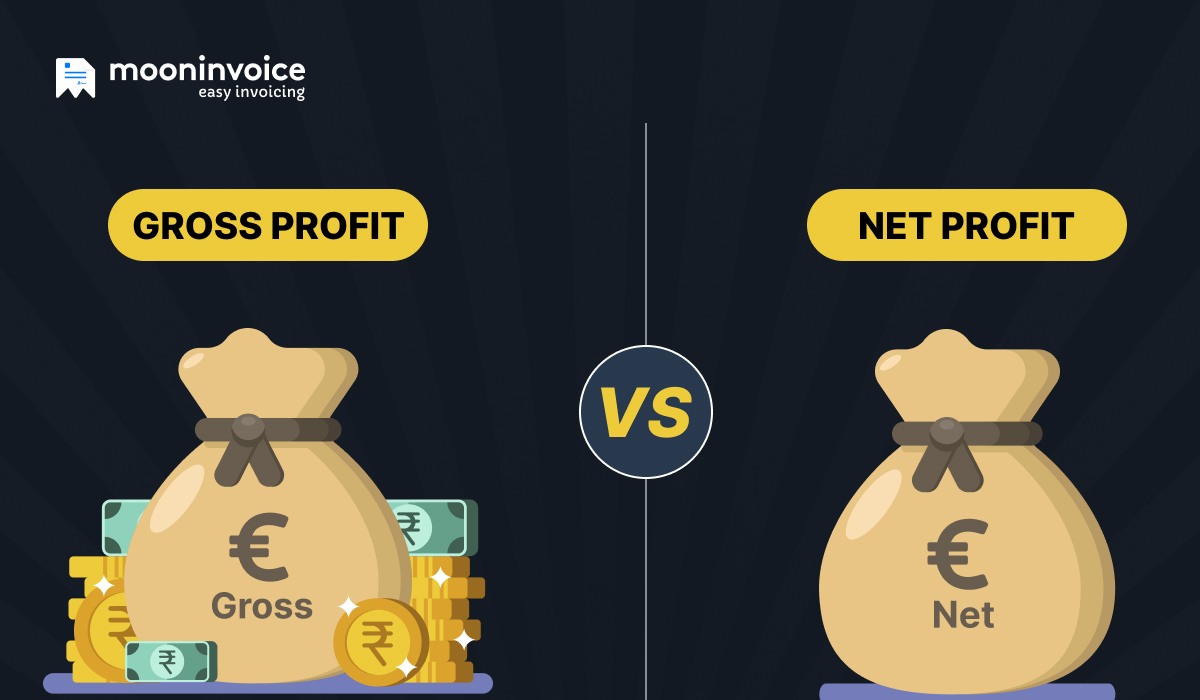If you are skilled in fashion design, opening a boutique is a great way to monetize your skills. With the fashion industry on the rise, you can capitalize on this growth by launching your own boutique shop. Offering unique products that can’t be found elsewhere or investing in technological tools can help you stand out and counter the stiff competition from established brands.
So, it doesn’t really matter whether you want to start a brick-and-mortar or online boutique shop, we have an A-Z guide to start your dream job right away. In this comprehensive guide on starting a boutique business, we aim to help entrepreneurs like you get the right start in 10 steps and reduce your lengthy research work. That’s not all, we will also shed light on how much is the cost of starting a boutique business. So, let’s dive deeper.
How to Start an Online Boutique
Know what are the 10 steps to get your boutique business up and running in the competitive world of fashion.
1. Find Your Fashion Niche
To enter the fashion industry, the first step is to finalize your fashion niche that aligns with your expertise. Since this industry boasts exciting opportunities for entrepreneurs, finding the perfect niche can help you stand out from the competition. Based on your niche, you can analyze the current market trends and develop strategies that get paid off.
So, basically, here you need to find out what excites you doing your job. You can either go with kids’ clothing, and sustainable fashion trends or collaborate with local designers. This is because when you do something you genuinely love, you are likely to bring the best out of yourself and take the business to a whole new level. That’s why identifying your fashion niche before making a business plan is very crucial to starting a new boutique business.
2. Develop a Brand
Next, you need to develop a brand that relates to your offerings and should be very easy to get recognized by your prospective customers. Remember you need to select a unique brand name that resonates with your target audience. You can do a quick Google search to see if the chosen brand has already been taken. Using a brand name that is already trademarked by someone can lead to legal issues, which you obviously don’t want at this initial phase of your business.
Once your brand is finalized, make sure it is there on every aspect of your boutique such as logo, bags, and even on your official social media account. Here are some questions to ask yourself when developing your brand.
- What’s the idea behind launching this business?
- Is the idea of starting a business to empower local designers’ work?
- Is it to offer sustainable fashion to adults or also to babies and children?
- What values do I want my brand to represent?
Choosing a unique brand name makes your business stand out from the boutique shops offering similar items.
3. Write Your Boutique Business Plan
Thereafter, comes writing a boutique business plan that should serve as a roadmap to launch your new business. You can seek industry experts’ advice to cover key factors in your plan. This process is to examine your idea and forecast the success rate once you are off the ground. While developing a business plan, you must address the potential issues like how will you raise funding, what extra resources will you need, and whether you will run a brick-and-mortar shop or open an online boutique business.
Besides, you also need a financial plan before setting up your business. So, decide if you need startup funding, a business loan from a bank, or a line of credit to operate your new business. You can even have a word with your financial advisor before moving forward. While crafting a business plan also outline your business location and how you will manage product inventory.
Manage Your Business Finances With Moon Invoice
Let Moon Invoice help you keep accurate records of your finances, giving you the much-needed head start for your boutique business.
4. Pick a Business Structure
When starting your new business, you must decide on what type of business structure you want to consider. You can establish your business as a sole proprietorship, LLC, or corporation. No matter which one you choose, you must know its impact on taxes, liability criteria, and other state regulations. You can even contact a legal practitioner to assist you in finalizing a suitable business structure for your boutique business.
At this stage, you must take time and then choose a business structure because each one will have its positives and negatives. Remember the right business structure will protect your personal assets even if anyone sues your business. Once you’ve registered your business as a sole proprietorship or LLC, you can operate with peace of mind, minimizing the risk of legal actions taken against your business.
5. Register Your Business
Upon finalizing a business structure, the next step is to get your business registered with your local government agency. In case you select an LLC or corporation business structure, first you need to apply online. Whereas, if you wish to run a boutique business under a specified name, you are required to undergo a process, known as ‘Doing Business As’ (DBA).
Based on your structure, register your business with the IRS and then get an employee identification number (EIN). The EIN is important for businesses having multiple employees. So, if you have employees working under you, obtain an EIN, which can be used to file federal taxes. Whereas, if you’re a sole proprietor, then you no longer need EIN because SSN (Social Security Number) can be used instead of EIN for business registration.
6. Open a Business Bank Account
Anyone starting a new business will require a business bank account instead of a personal bank account. This is because you need to keep business and personal finances separate. Plus, it’s especially beneficial for businesses registered as LLCs or corporations, as it provides liability protection in case your company becomes liable.
Apart from liability protection, business credits are also important as vendors might consider your credits before initiating a business transaction. Hence, opening a business bank account along with a credit card is what you need prior to the launch of your boutique business. Notably, the bank will ask for EIN to open a business bank account. So, make sure you obtain an EIN before you place a request for a new bank account.
7. Adopt an Invoicing Software

It goes without saying that your boutique business needs someone to take care of your billing & accounting process during the checkout process. Adopting powerful invoice software like Moon Invoice can handle your accounting duties and minimize your workload. You can issue accurate invoices & receipts having peace of mind that you don’t need to make them from scratch.
Moon Invoice empowers businesses to make professional invoices using its pre-built boutique invoice templates. These professional and polished invoices can boost your payment collection process and set you free from chasing unpaid invoices. What’s interesting is that you can analyze profit and loss (PNL) reports and make necessary adjustments in your business strategies to drive business growth.
Let Moon Invoice Perform Your Invoicing Duties
Hand over your tedious invoicing and billing tasks to Moon Invoice and delight your customers with accurate invoices.
8. Get Licenses and Permits
No business can operate without having a valid license. You need to obtain business licenses and necessary permits from the state government, regardless of your business size or structure. Below are some licenses and permits you should get in order to run a boutique business.
- License for business operation: Issued by your local administration, this license provides permission to operate your boutique shop.
- Garment registration certificate: In case you collaborate with contractors in garment manufacturing, then you need to get a garment registration certificate.
- Seller permit: Sometimes also known as a reseller permit, a seller permit is a must for any type of business to sell their items or provide service.
- Occupancy certificate: This certificate highlights the use of the occupied space for your boutique store.
- Home occupation permit (if applicable): A necessary permission you need from the local government if you decide to operate a boutique business from home.
- Alarm permits: If you decide to install a monitoring system at your store, then you will need an alarm permit.
9. Get Business Insurance
To deal with any unforeseen event, getting the right insurance is crucial for any business. Similarly, your boutique business also requires general liability, commercial auto or business income insurance. From property damage to workers’ injuries, business insurance safeguards your business from everything. It is advisable to research and explore different insurance in order to find a suitable insurance that aligns with your boutique.
In case you are planning to hire employees for your boutique business, you also need to get worker’s compensation insurance. Additionally, If you want to lease a property for launching a boutique business, then property owners may demand proof of business insurance. Therefore, it is recommended to discuss with insurance experts and understand insurance policies in detail before you buy them.
10. Market Your Business
No matter how close you are to the deadline of opening your boutique business, without marketing your business you may not take it to the next level. So, take some time to make a marketing plan that helps you reach your target customers and boost your sales. In fact, you need a marketing strategy even after the launch of your business. Because it is something that you need to keep doing as far as your product sales are concerned.
Here are some marketing tips to consider when starting your own boutique business.
- Online website: Develop your own business website to attract online users. It allows your potential buyers to browse your products online.
- Email marketing: Send updates such as discount offers or seasonal sales via email to keep your customers informed.
- Social Media presence: Regularly post updates related to boutique products on social media accounts and engage in conversation with social media users.
- Google business profile: Set up a boutique business profit soon after your launching date to improve business visibility in your locality.
How much does it cost to open a clothing boutique store?
You will need $50,000 to $100,000 as the startup cost for opening a clothing boutique. The cost could be even higher if you plan to launch a chic boutique with modern collections aimed at contemporary customers. Of course, it’s quite high. But, if you wish to operate an ordinary clothing boutique rather than opening a luxury boutique in the starting phase of your business, then the cost can be significantly lowered. Since your startup cost matters the most, it should be included in your business plan to check if there is a requirement for extra funding.
Conclusion
That’s all it takes to launch a new boutique business. With the aforementioned steps, you now have the answers to how to open a boutique and how much it costs to start a boutique. As we inch closer to the end part, now you know why finding a proper niche is so important and why you must sell your products to the targeted people.
In case, you don’t want to operate a boutique as a full time business, you can start an online boutique as a side hustle idea, which will pull down the startup cost. But, if you are seeking a full time business with steady growth, investing in the right automation software like Moon Invoice makes a real difference. Try it by yourself with our 7-day free trial.



















